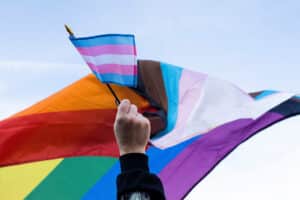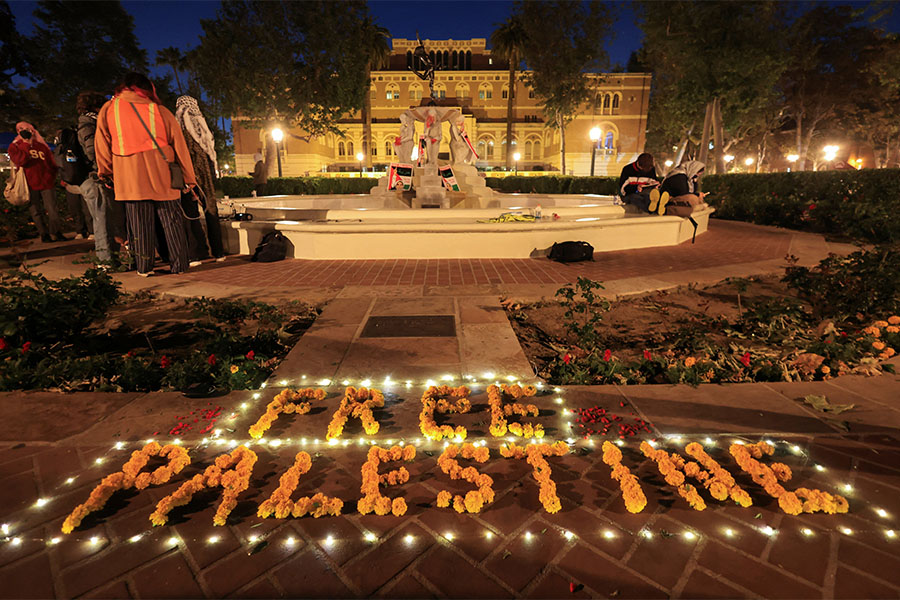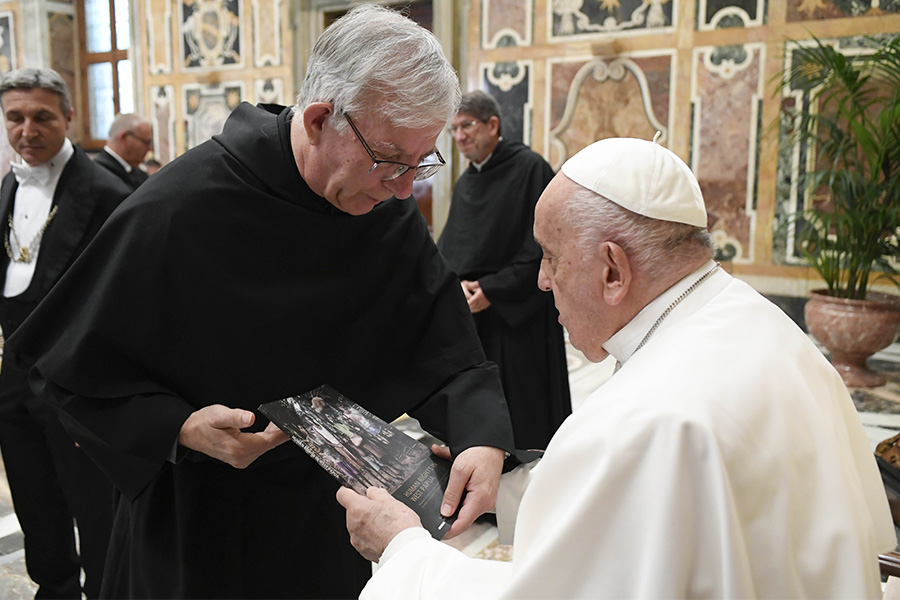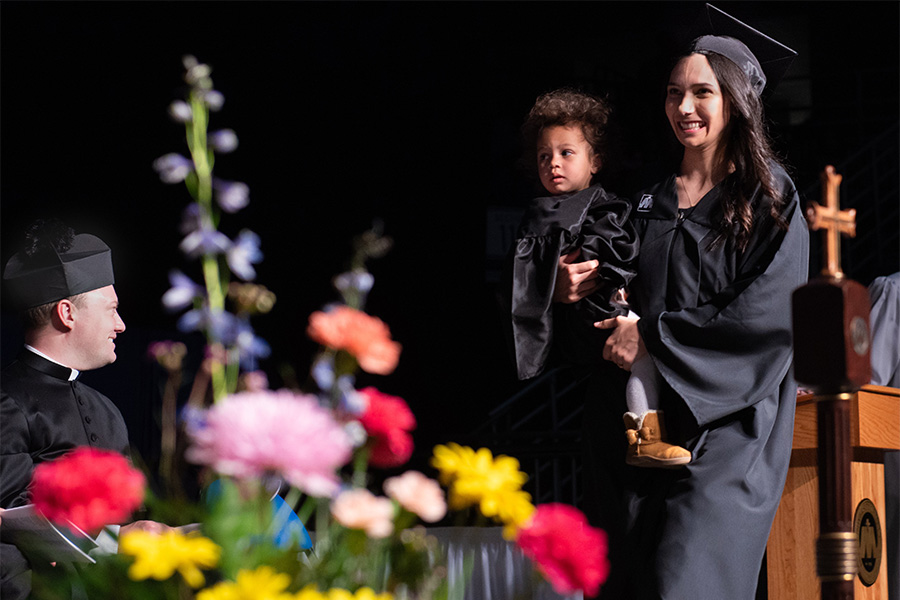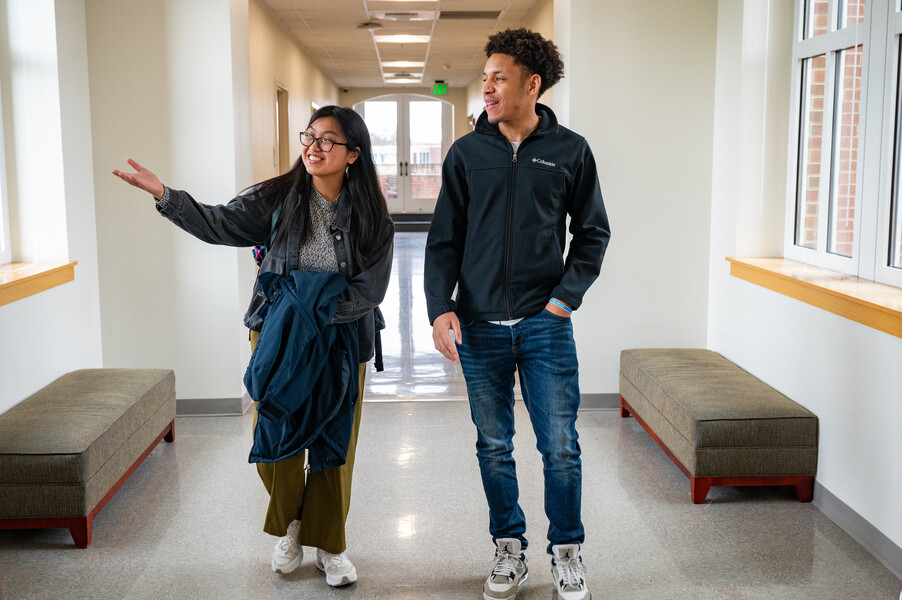A Baltimore university has sparked controversy with its redefinition of the word “lesbian” using the term “non-man” instead of “woman” — but the backlash points to a cultural “confusion and fluidity” where categories “just melt,” said Joseph Meaney, president of the National Catholic Bioethics Center in Broomall, Pa.
On June 12, Johns Hopkins University updated its official definition of the word “lesbian” in its “LGBTQ Glossary,” which is posted on the school’s “Gender and Sexuality Resources” webpage.
The updated text defined the term as “a non-man attracted to non-men,” with the change intended to “(include) non-binary people who may also identify with the label.”
Previously, the university had said the term referred to “a woman who is emotionally, romantically, sexually, affectionately, or relationally attracted to other women, or someone who identifies as part of the lesbian community.”
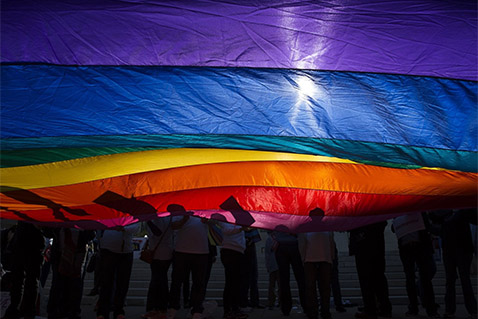
The revision evoked outrage from a number of social media users in the LGBTQ+ community, including lesbian YouTube influencer Arielle Scarcella, who in a June 12 tweet denounced the new definition as a form of “progressive misogyny.”
Author J. K. Rowling, who has come under fire for speaking out against what she calls “the new trans activism,” tweeted June 13 a photo of the LGBTQ Glossary commenting, “Man: no definition needed. Non-man (formerly known as woman): a being definable only by reference to the male. An absence, a vacuum where there’s no man-ness.”
Johns Hopkins offlined the glossary altogether on June 13, explaining in a statement to OSV News the university had “begun working to determine the origin and context of the glossary’s definitions” and had “removed the page from (the school’s) website while we gather more information.”
The university said it “strives to create a campus culture that is inclusive and welcoming for all gender identities, sexual orientations, experiences and viewpoints,” and that it is “committed to ensuring Johns Hopkins is a place where LGBTQ people feel supported.”
The statement also said the glossary is “an introduction to the range of identities and terms that are used within LGBTQ communities,” but “is not intended to serve as the definitive answers as to how all people understand or use these terms.”
A copy of the statement has replaced the text on the website of the glossary.
“What happened here is that Johns Hopkins got ahead of itself. They were trying to kowtow to the latest, but didn’t realize they had taken one step too far into absurdity,” Meaney, of the National Catholic Bioethics Center, told OSV News.
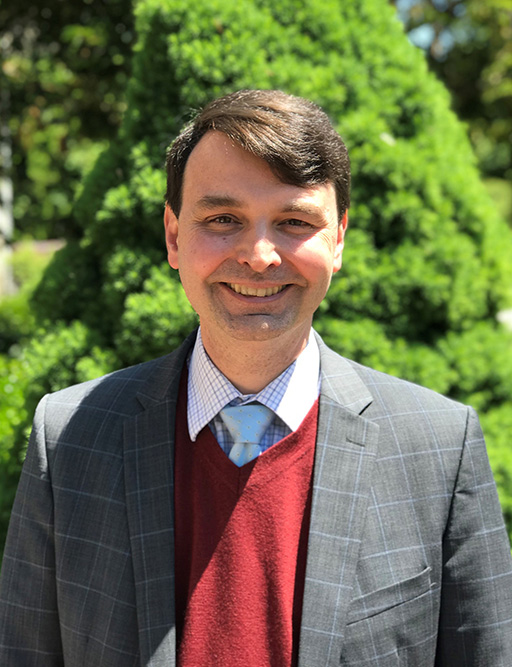
In the course of the “semantic failure,” Meaney said, Johns Hopkins “tried to be politically correct, but ended up offending their side more than anyone else.”
“It seems they were trying to include transgender people in the lesbian definition, but they ended up just creating a negation: non-men,” he said.
Meaney noted the glossary, and similar attempts to shape the “constantly expansive” language of sexuality and gender, are “kind of mob-based.”
“What’s a little bit unclear is who has the actual authority here,” he said. “Different influential groups and individuals gang together and decide, ‘This is good, this is bad.’ … It’s a weird situation in the sense that there is no recognized single authority … (only) the characteristics of peer pressure and mobbing.”
The Johns Hopkins incident offers Catholics “a key place to go with a positive message” about the church’s view of sexuality, Meaney said.
Ultimately, said Meaney, “whether you’re a lesbian or a ‘non-man’ is not the question. The question is, what is a human being? What is our God-given nature, and how are we created? That’s what we need to investigate.”
“We’re looking at ourselves with a lot of introspection, as opposed to trying to understand ourselves from a more objective, divine perspective,” he said.
Chruch definition
In March, the U.S. Conference of Catholic Bishops released a 14-page statement by its Committee on Doctrine, chaired by Bishop Daniel E. Flores of Brownsville, Texas, explaining, “The human person, body and soul, man or woman, has a fundamental order and finality whose integrity must be respected.”
The committee’s statement quotes numerous Second Vatican Council documents, other church documents and the teachings of several popes, including Pope Francis and his encyclicals “Laudato Si'” and “Amoris Laetitia,” on the goodness of the natural order of men and women being created differently, the importance and the meaning of sexual difference “as a reality deeply inscribed in man and woman.”
“In our contemporary society there are those who do not share this conception of the human person,” the committee said. “Pope Francis has spoken about an ideology that promotes ‘a personal identity and emotional intimacy radically separated from the biological difference between male and female.'”
The committee referenced Pope Francis’ teaching that “young people in particular need to be helped to accept their own body as it was created, for ‘thinking that we enjoy absolute power over our own bodies turns, often subtly, into thinking that we enjoy absolute power over creation. … An appreciation of our body as male or female is also necessary for our own self-awareness in an encounter with others different from ourselves.'”
Read More Colleges
Copyright © 2023 OSV News
